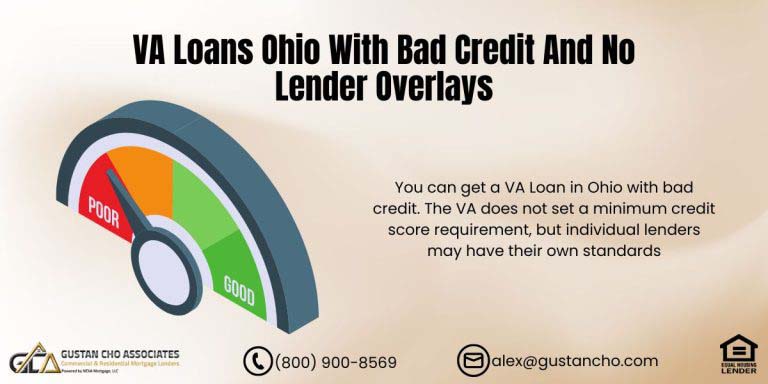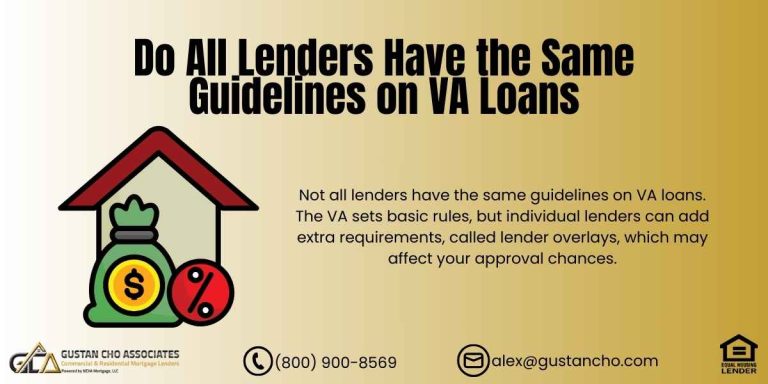This Article Is About FHA Loan Credit Guidelines Versus Lender Overlays
The U.S. Department of Housing and Urban Development (HUD), which is the parent of the Federal Housing Administration (FHA), is not a mortgage lender but an insurance provider for all FHA loans in this country. FHA loans are extremely popular due to the government guarantee. FHA Home Loans are very popular because it provides home buyers the chance to qualify for owner occupant homes with less than perfect credit and higher debt to income ratios.
Borrowers can qualify for FHA Loans who otherwise cannot qualify for traditional conventional loan programs. HUD does have FHA loan credit guidelines and mortgage lending requirements like all other loan programs. There are minimum credit and income requirements to qualify for FHA Loans.
FHA Loan Credit Guidelines Credit Score Requirement
FHA mandates a minimum credit score for all of its applicants among other mortgage lending requirements.
To qualify for an FHA loan with a 3.5% down payment, the minimum credit score required is 580. Borrowers can qualify with a credit score as low as 500. However, for borrowers with credit scores between 500 and 579, 10% down payment are required and compensating factors.
Not all lenders have the same lending requirements on FHA loans. All lenders require their borrowers to meet the minimum agency HUD guidelines. However, lenders can have higher lending requirements that are above and beyond HUD which is called lender overlays. This is why not all lenders have the same lending requirements on FHA loans. Just because one lender denies a borrower on an FHA loan does not mean another lender will not approve them.
Compensating factors benefit borrowers who have less than perfect credit or are marginal borrowers for an FHA loan. This holds especially true for borrowers who need to have their files manually underwritten.
Examples of compensating factors are:
- higher down payment
- rental verification with low payment shock
- reserves
- other income such as part-time income not used as qualified income
Over 75% of our borrowers at Gustan Cho Associates are folks who could not qualify at other lenders due to lender overlays.
Start Improving Credit Scores Now
Buyers intending on buying a home in the near future should start improving credit scores by adding positive credit. Credit repair can often backfire during the mortgage process. Credit disputes are prohibited during the mortgage process. There are very simple tricks of the trade that can boost credit scores.
Prior bad credit does not disqualify borrowers from qualifying for a mortgage. Re-establishing credit by adding new positive credit by getting several secured credit cards is the easiest and fastest way of preparing to qualify for a mortgage. The Key to qualifying for a mortgage is being timely on all payments in the past 12 months. Do not be late on any credit payments. One 30-day late payment will plummet credit scores. Prior bad credit is fine but lenders want to see timely payments in the past 12 months.
Monitoring Credit
Monitor credit report at least every 4 months and check for errors. The giant three credit reporting agencies, Experian, Equifax, and Experian, are not always accurate and can make errors misreporting credit information. Errors can be removed by federally mandated credit reporting laws.
Borrowers with a home loan, please do not be late under any circumstances. Mortgage lenders do not want to see any late payments on mortgage payments in the past 12 months. Some mortgage lenders will have an overlay mortgage payment for the past 24 months that needs to be timely. Late payment in the past 12 months is not a deal killer in getting an approve/eligible per Automated Underwriting System approval.
Borrowers with 60 or more days in the past 12 months, may need to wait until they have been timely for the past 12 months. Borrowers with late payments in the past 12 months may try to contact the service provider and see if they can have that late payment removed.
FHA Loan Credit Guidelines: No Credit, No Credit Scores
There are folks who have never had any traditional credit and thereby do not have a credit score. This does not mean that they cannot qualify for an FHA loan. For these home buyers, lenders can use non-traditional credit.
What is non-traditional credit? Non-traditional credit is established credit that is not reported to the three giant credit reporting agencies.
For example, the following are examples of non-traditional credit:
- water bills
- telephone bills
- gas bills
- cellular phone bills
- insurance payments
- rental payments
- auto insurance payments
- other forms of regular payments that are not reported to the three credit reporting agencies
The above non-traditional credit tradelines can be used in lieu of traditional credit tradelines.
Bankruptcy, Foreclosure, Deed In Lieu Of Foreclosure, Short Sale
There are waiting periods after a bankruptcy, foreclosure, deed in lieu of foreclosure, and short sale in order to qualify for FHA Loans. For FHA loan credit guidelines mandate a two-year waiting period after Chapter 7 bankruptcy discharge. Three years from the recorded date of a foreclosure and/or deed in lieu of foreclosure. There is a three-year waiting period after the settlement date of the short sale which is reflected in the HUD’s settlement statement of the short sale. Borrowers can qualify for FHA Loans one year into Chapter 13 Bankruptcy Repayment Plan with Trustee Approval. The Chapter 13 Bankruptcy does not have to be discharged to qualify for an FHA loan.
FHA Credit Guidelines: Collection Accounts And Credit Derogatory Disputes
Mortgage Borrowers cannot be delinquent on government and student loans and/or child support payments, income taxes, and alimony to qualify for FHA Loans. Borrowers behind in any of the above loans, the loan must be current and in good standings in order to qualify for FHA Loans.
With regards to collection accounts, FHA has classified collection accounts into two tiers:
- Non-medical collections
- Medical collections
Borrowers can have collection accounts with open credit balances and charge-offs. However, FHA loan credit guidelines state that with outstanding collection accounts over $2,000 balance, 5% of the balance will be used in calculations of debt to income ratios. This can create a big problem if the collection balance is high amount. On a $20,000 old collection account, 5% of $20,000 is $1,000 which can severely impact debt to income ratios. The good news is that FHA will allow a written payment agreement. Will take the agreed monthly payment plan in calculating the debt to income ratios.
For example, here is a case scenario:
- a borrower with outstanding collections of $20,000
- entered into a $200 per month payment agreement with the collection agency
- then the $200 agreed payment will be used to calculate debt to income ratios and not the $1,000 or 5% of the $20,000
There is no seasoning requirement with this. The day the payment agreement is signed by both the collection agency is the effective date. Medical collections with balances are exempt from these FHA loan credit guidelines.
Qualifying For FHA Loans With Judgments And Tax Liens
Home Buyers can qualify for FHA Loans with Tax Liens and/or Judgments as long as they have a written payment agreement and three months payment seasoning to the IRS and/or Judgment Creditor. Borrowers can still get a mortgage even with unsatisfied judgments and tax liens. Need payment agreement and repayment plan into effect. Need at least three monthly payments seasoning. The second option is to have a judgment or tax lien paid in full at or prior to closing. Judgment can be negotiated to a lesser amount than face value and settled.
Credit Disputes During The Mortgage Process
Disputing non-medical collections with credit balances over $1,000 is not allowed by FHA during the mortgage process. Borrowers need to retract the derogatory credit dispute with the open collection balance. It needs to be reflected on the credit report that the dispute has been resolved. Unfortunately, retracting a derogatory credit dispute will lower credit scores. Zero balance collection accounts and non-medical collection disputes with an aggregate total under $1,000 are exempt from retracting disputes. Derogatory items, late payments, and charge-offs cannot be disputed. Medical collections, again, is exempt from FHA loan credit guidelines on credit disputes with open credit balances.









